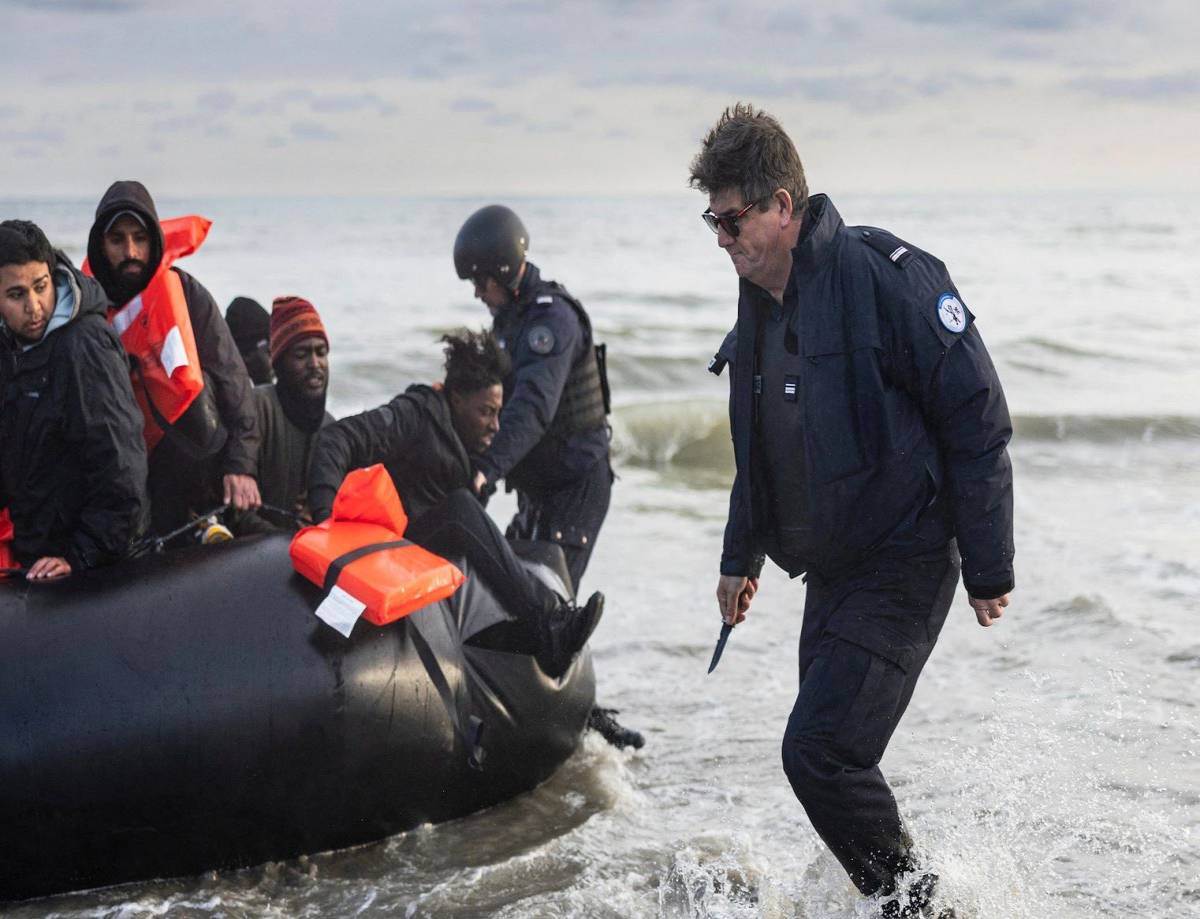2281 Views
France's Boat Popping Policy: Not Just Inflatable Dinghies - Human Rights Are Deflating Too!
The English Channel has become one of the most critical flashpoints in the global migration crisis. Thousands of migrants attempt to cross from France to the UK in search of safety and better opportunities. In response, France has intensified its efforts to prevent these crossings—shifting from indirect surveillance to direct physical intervention. This policy shift, partly funded by the UK, has sparked fierce debate and raised serious concerns about the humanitarian impact, legal violations, and France’s moral obligations.
France has dramatically changed its approach to managing Channel crossings. Previously, French authorities relied on intercepting migrants after they had set off—an indirect deterrence strategy. But now, the focus has shifted to preventive deterrence, with officials actively working to stop departures altogether. For instance, in 2025, French gendarmes punctured inflatable boats belonging to migrants. The BBC documented one such incident, where police slashed a boat carrying dozens of migrants near the coast of Équihen-Plage, justifying it as a humanitarian action to “save lives.”
However, these actions have severe human consequences. Puncturing boats increases the risk of capsizing and endangering lives. Reports indicate that at least 15 migrants died in early-stage crossings in 2025, many as a direct result of these interventions. Though framed as efforts to reduce crossings, such tactics have been widely condemned for endangering lives and contradicting safety-first protocols in migration management.
The UK's Role in Shaping France’s Migration Policy
The UK has played a major role in shifting France's migration tactics. Since 2018, Britain has contributed billions of euros to France for curbing illegal migration, including funding increased patrols and boat interceptions. This financial cooperation has effectively extended UK border control onto French soil. The British government has praised France’s aggressive tactics—such as boat puncturing—as a “significant moment” in deterring crossings.
Recent agreements, including pilot programs for returning some migrants to France in exchange for accepting others with valid claims, signal deeper collaboration. These arrangements reveal how Britain is leveraging financial aid to shape French policy, raising questions about shared responsibility for the human cost—while the UK distances itself from direct accountability.
Backlash from Aid Groups and Civil Society
France’s new migration policies have drawn sharp criticism from aid organizations and civil rights groups. They argue that such actions violate France’s human rights commitments and endanger the dignity of migrants. France, which presents itself as a defender of universal values, is now jeopardizing its own legacy as a champion of human rights.
A 2024 Amnesty International report found that both French and British authorities failed in their duties, making 2024 the deadliest year on record for Channel crossings, with over 70 confirmed deaths. The French Red Cross has documented dire conditions in northern migrant camps, which lack access to clean water, sanitation, and medical care.
Repeated police evictions further exacerbate migrants’ vulnerability and restrict access to humanitarian assistance.
Additionally, deportation orders against nationals from countries like Afghanistan and Syria—where forced return violates the principle of non-refoulement—have been denounced as breaches of international law, including the 1951 Refugee Convention.
Escalating Physical Deterrence, Rising Human Cost
The shift to physical deterrence has significantly increased the risk of humanitarian catastrophe in the Channel. Maritime rescue teams have reported greater dangers facing migrants during early crossing stages. The French interior minister's statement that such deaths are “unfortunate consequences” of “effective” law enforcement drew widespread criticism, revealing a gap between security objectives and human realities.
The French Red Cross has emphasized that the lack of safe, legal migration routes forces people into dangerous alternatives, often exploited by smugglers operating “taxi boats.” These conditions, combined with aggressive police deterrence, have turned the Channel into a deadly corridor.
France’s Dilemma: Law or Pressure?
France now faces a complex dilemma: on one side, pressured by Britain to tighten security; on the other, bound by legal and moral commitments. The UK’s pressure has pushed France toward harsher border enforcement, as seen in expanded patrol budgets and bilateral deals. Yet, France is still obligated under international law—including the UN Convention on the Law of the Sea, which mandates rescuing those in danger, and the Refugee Convention, which prohibits forced returns.
A Bigger Picture: The Western Shift toward a Post-Human Rights Era
France’s crackdown in the Channel reflects a broader trend in Western migration policy—where security is prioritized over human rights. The World Economic Forum has warned of a shift toward a “post-human rights” era, where migration policies are driven by geopolitical interests, surveillance technology, and border fortification, rather than humanitarian principles.
Tactics like boat puncturing symbolize this shift, where deterrence trumps migrant safety and dignity. Such an approach ignores the root causes of migration—often linked to Western policies, including military interventions, economic exploitation, and climate negligence in the Global South.
By focusing on exclusion instead of solutions, Western governments risk normalizing unethical behavior under the guise of “security” or “national preservation.”
Conclusion: A Call for Human-Centered Migration Policy
To truly address the migration crisis, France and other Western nations must adopt a human rights–based approach, as outlined by the United Nations and the Global Compact for Safe, Orderly and Regular Migration. This includes creating legal pathways, addressing root causes, and ensuring that security measures do not come at the cost of human dignity.
Only by accepting historical responsibility, reevaluating foreign policy, and offering humane and legal asylum channels can Europe avoid a humanitarian disaster—and reclaim its foundational values. Otherwise, the cycle of crisis and conflict will persist, eroding the very ideals the West claims to uphold.
*Translated by Ashraf Hemmati from the original Persian article written by Amin Mahdavi

Comment
Post a comment for this article